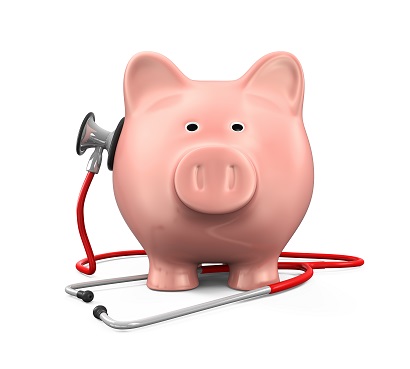WinCU Family & Friends Blog

Are You Feeling Well? Financially.
For some of you financial wellness might be a completely new phrase. Some may have heard about it but don't completely understand the meaning. Then there’s a group of you that strive for financial wellness everyday.
Personally, I’ve experienced all three stages at one point or another. It’s a journey not a stagnant place. Life has many ups and downs and financial wellness has a way of following life’s course.
Personal finances and financial wellness expand well beyond just the financial part of your life. Finances can cause stress and anxiety; which lead to lower production at work, health issues, and cause stress in personal relationships.
Here are some key considerations when thinking about your "financial wellness"
1. Create a budget and stick to it. A great strategy that many people use is to set aside a certain amount of money out of every paycheck for the necessary monthly bills. So when the time comes to pay the bill you already have the money put aside for it. If you are reviewing your expenses and you realize your requirements are more than you are earning then you have to make some tough decisions and figure out what you can change in order to save money. Maybe that means consolidating some debt or going without cable or waiting a little while before buying the hottest new cell phone on the market. If you create a good budget and have the money put aside for each bill it will take a huge burden of stress off of you not knowing where the next mortgage or rent payment is going to come from. That is actually the exact strategy that I have used by putting 1/2 of every major bill into a separate account every paycheck. So when the time the mortgage, car payment, or student loan payments would come around I know it is in my "bills" account. Along with the budget you set aside for bills you should also set a spending limit on personal expenses or “fun money” based on how much money you have left after paying all your bills. This makes sure you are not going crazy spending too much on those new shoes or going out to eat too much.
2. Set up a savings plan. This goes hand in hand with #1 and should directly be part of your budget. But, it is also important enough to draw its own line. You want to keep a savings plan in mind when you are setting a budget. Putting money away for a savings plan will allow you to budget some "fun" purchases or putting something extra away for retirement. If you know you want to take a trip to Mexico and know that is going to take at least $2,000 then start a savings plan and put aside $50/mo for it and if you cant afford $50 then start smaller and build it up.
3. Get to know your credit and what impacts your score. This is one of the most important things you can learn at an early age. This can help you save thousands or hundreds of thousands of dollars over your lifespan. It's amazing the difference 50 or 100 points on your credit score can make. Transunion.com and experian.com are a great place to find credit education information.
To help with #1 and #2 you can utilize a financial planning tool or app. Many of these link directly with your financial and will help track your spending. Sometimes it can be pretty eye opening how much you are really spending on things you don't really need, like that $5 daily coffee. Some great apps are Mint, Clarity Money or PocketGuard. You can try one of those out or check your app store for something that works well for you. The best financial app or budgeting tool is the one you will actually use. You just have to figure out what works for you.
Finances can get overwhelming but always remember that you are not alone. In a 2016 article by CNN Money they stated that 76 million American's are "struggling financially" or "just getting by". It's ok to ask for help. Contact your local "Winnebago Community Credit Union Financial Services Representative" to review your accounts and look for options to save money.
